News & Podcast
2017 Fall TC Newsletter
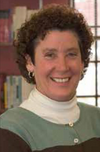 As I write this column, a new semester is beginning and the Great Minnesota Get-Together has just finished another successful year. In a similar manner, we are beginning anew while having just completed one of the most successful years in our history. Before I get into the details, I want to acknowledge the passing of our founder and major donor, Dorothy McNeill Tucker. I first met Dr. Tucker in late 1992. She had agreed to provide significant financial support to endow what would become the first—and remain the only—research center in our nation devoted to the scientific study of what it means to be female and involved in sport and physical activity. As she said at the time of her unprecedented gift: “Anybody can endow a Chair in economics or psychology … I walk to a different drummer and want my gift to have real impact.” As we approach our 25th anniversary, it’s safe to say that her wish did indeed come true. To learn more about Dr. Tucker and her pioneering spirit, see "Dorothy McNeill Tucker: 1923-2017" in this newsletter.
As I write this column, a new semester is beginning and the Great Minnesota Get-Together has just finished another successful year. In a similar manner, we are beginning anew while having just completed one of the most successful years in our history. Before I get into the details, I want to acknowledge the passing of our founder and major donor, Dorothy McNeill Tucker. I first met Dr. Tucker in late 1992. She had agreed to provide significant financial support to endow what would become the first—and remain the only—research center in our nation devoted to the scientific study of what it means to be female and involved in sport and physical activity. As she said at the time of her unprecedented gift: “Anybody can endow a Chair in economics or psychology … I walk to a different drummer and want my gift to have real impact.” As we approach our 25th anniversary, it’s safe to say that her wish did indeed come true. To learn more about Dr. Tucker and her pioneering spirit, see "Dorothy McNeill Tucker: 1923-2017" in this newsletter.
There are several important initiatives we’ve been working on over this past year. Our scholarly efforts have strengthened ongoing partnerships with local and national organizations to fulfill a core part of our mission—public service directly tied to our research. For example, co-Director Nicole M. LaVoi continues to bring much-needed attention to the decline of women in leadership positions, particularly as head coaches. Through her efforts overseeing the annual Research Report Cards that grade universities on the number of female coaches they employ, to her numerous speaking engagements around the world, Dr. LaVoi has become the nation’s leading expert in this emerging area of academic study.
Our Fall Distinguished Lecture highlights another area of emerging study that is also much needed. In mid-October we host a panel of experts who will examine the barriers faced by transgender athletes as they seek recognition, respect and equality in the world of sports. (See "Fall 2017 Distinguished Lecture: Transgender Athletes: Challenging & Transforming Sports" in this newsletter for more details). Related to our panel, Dr. Austin Calhoun, a TC Affiliated Scholar, has written a thought-provoking column on the subject of transgender athletes. Her analysis provides important background on the complex issues which arise when transgender athletes ask us to re-conceptualize what it means to be “male” and “female” not only in sports, but in society at large.
To keep current on all of our projects, visit our website and follow us via social media. Here’s to a happy fall and new beginnings!
—Mary Jo Kane, Director
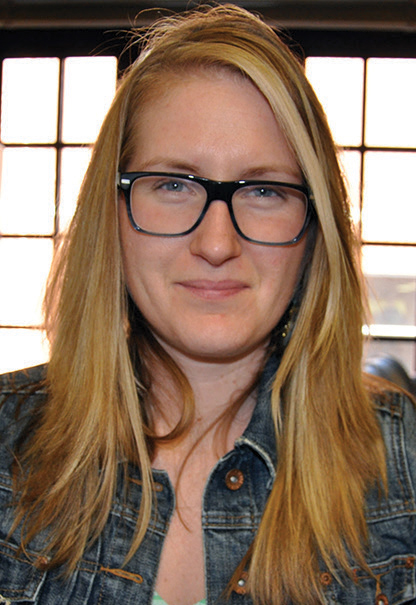 In the mid-1990s, sport sociology Professor and Tucker Center Director, Mary Jo Kane, introduced the sport continuum theory—the idea that there “exists a sport continuum in which many women routinely outperform men and, in some cases, women outperform most, if not all, men, in a variety of sports and physical skills/activities.” Professor Kane was far ahead of the times when she challenged sociologists, psychologists, coaches, administrators, parents, athletes and fans to revisit sport as a gendered binary anchored in ability and performance rather than in notions and practices of “female” and “male”.
In the mid-1990s, sport sociology Professor and Tucker Center Director, Mary Jo Kane, introduced the sport continuum theory—the idea that there “exists a sport continuum in which many women routinely outperform men and, in some cases, women outperform most, if not all, men, in a variety of sports and physical skills/activities.” Professor Kane was far ahead of the times when she challenged sociologists, psychologists, coaches, administrators, parents, athletes and fans to revisit sport as a gendered binary anchored in ability and performance rather than in notions and practices of “female” and “male”.
To illustrate the sport continuum theory, consider the female winners in the last three (2014-2016) Twin Cities Marathons. The application of this model demonstrates that while Jane Kibii came in 15th out of 8,561 runners in 2016 (i.e., 14 men bested her time), she was faster than the remaining 4,702 men that ran the same race over the same course on the same day. Similar comparisons can be made for the female marathon winners in 2015 (17th overall—faster than 4,739 males) and 2014 (39th overall—faster than 4,817 males).
While the sport continuum theory challenges traditional notions of performance and ability, Kane’s comparison is based on the rigid and socially constructed categories of sex and gender: Male vs. Female; Masculine vs. Feminine.
Sport has a long and uncomfortable history with such categorical comparisons—and segregation. Whether it be about race, class, age, (dis)ability, or/and sex, segregations in sport mirror segregations in society. Baseball’s Negro Leagues in the 1920s provide one clear example of how social prejudices based on phenotypes can (and do) divide sport, not to mention society writ large.
A more recent example of how societal expectations, social norms and stereotypes have divided sport involves transgender, gender non-conforming and intersex athletes. As the Genderbread Person graphic on the next page illustrates, the binary of sex-segregated sport is inherently problematic for those whose biological sex conflicts with their assigned gender identity (i.e., transgender), for those whose gender expression conflicts with societal expectations (i.e., gender non-conforming), and for those whose sex characteristics are neither strictly male nor strictly female (i.e., intersex). The graphic also showcases how many continua there are when it comes to sex and identity—that there are not two lone (and only) anchor points to consider. Like any continuum, there are not only realities in between, but complex and intersecting layers of identity expression.
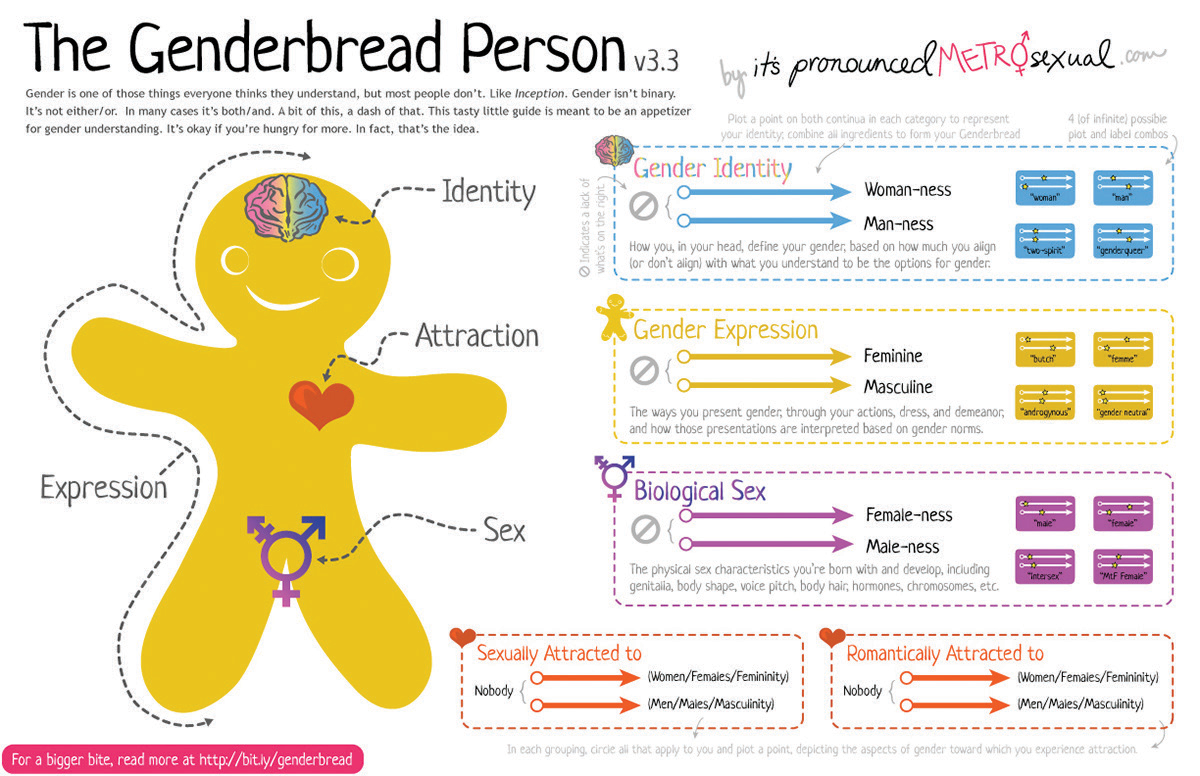
There is very little specific data regarding the number of transgender, gender non-conforming, or intersex athletes in the United States, and much less internationally. However, the Williams Institute issued a report in 2016 suggesting that ~0.6% of adults in the U.S. (~1.4 million individuals) identify as transgender; the numbers may even be higher among youth. In a recent Human Rights Campaign survey of over 10,000 LGBTQ youth, 10% of respondents identified as “transgender” or as “other gender,” and wrote in identities like “gender-queer,” “gender-fluid” or “androgynous.”
Where we do have data about the intersection between sport and transgender, gender non-conforming, and intersex populations is in individual, personal stories. This seems more than fitting, as the sex binary is societal and structural, but the impact is uniquely individual. One such story is Schuyler Bailar’s, who is the first publicly documented transgender man to compete in any sport on a Division I men’s team. At 15, Bailar was a nationally ranked swimmer and was originally recruited as a member of Harvard’s women’s swimming team. He transitioned during a gap year and was offered a spot on the men’s team, where he currently competes. His story is historic—and for many, inspirational.
Unfortunately, Bailar’s story is not the norm. Barriers such as access to transition care and self-efficacy, along with institutional barriers like university or league policies, may hinder athletes’ participation in the team of their choice—and their ability to choose a team that affirms their gender identity.
There are many more stories to consider: World-class, middle-distance runner Caster Semenya. WNBA All-star Brittney Griner. Indian national 100m sprint champion, Dutee Chand. What these three women have in common is that their gender expression doesn’t align with society’s expectations of what it means to be female. As a result, their biological sex—and their ability to participate with and against other women—continue to be contested.
It should be emphasized that these women are not transgender. Rather, they directly challenge the gender binary of what it means to be a woman and a female athlete. Well beyond their sports participation, they have had their very personhood questioned and undermined. Semenya underwent extensive and humiliating sex testing by the International Association of Athletics Federations. Chand has hyperandrogenism (a condition signified by high testosterone) and had to fight to compete internationally as a female athlete. It was speculated that Griner didn’t compete in the 2012 Olympics in order to avoid the infamous practice of sex/gender verification. (Griner did compete in the 2016 Rio Games and won the gold medal).
Though dismissed as a long-discarded historical practice, even today female athletes are often forced to “prove” their biological sex by way of birth certificates, hormone testing or other invasive and shaming mechanisms. These gatekeeping policies reinforce binary interpretations of biological sex and are, in any case, inaccurate measures of it. For example, physicians at Mayo Clinic have stated that standard testosterone levels do not accurately determine someone to be female or male. Like Dutee Chand, one can be a woman with high levels of testosterone. Similarly, a doctor’s checkmark by the word “female” or “male” on a birth certificate should not create a categorical imperative for the team on which an athlete can compete.
Most scholars and advocates believe that allowing transgender athletes to participate on the team that corresponds with their gender identity is in the best interest of the athlete, especially at the youth level. Unfortunately, that belief has been slow to be universally adopted by policy-makers and administrators. The advocacy site, Transathlete.com, illustrates how high-school sport policies vary from state to state. More recently, the NCAA has taken strides toward more inclusive policies by not requiring gender-confirming surgery or legal recognition for transgender players to participate on a team which matches their identity, though additional restrictions and timelines do apply when the athlete begins hormone treatment.
If the above discussion and analysis seems complicated, it is. But it’s important to remember that the complications—and complexities—exist because sexism and heterosexism are systems of power that have been institutionalized over centuries and have created the gender binary that exists today. These issues are also complicated because challenging systems of power brings privilege into question. And it’s complicated because the people challenging the system do not have the same power and privilege as those who control it. Finally, it’s just complicated … but then again, it really isn’t. For athletes like Bailar, being able to swim on the men’s team “saved [my] life … [and is] the best decision I’ve ever made.”
The Tucker Center’s Fall Distinguished Lecture, “Transgender Athletes: Challenging and Transforming Sports,” will provide an important forum to begin a dialogue about the complex issues surrounding transgender athletes in sport. Such a dialogue will also deepen—and challenge—our understanding of the continuum that is sport.
October 18: The 2017 Fall Distinguished Lecture, "Transgender Athletes: Challenging & Transforming Sports." Wednesday, October 18, 7-9pm at Cowles Auditorium.
November 17-18: The Western Society for Physical Education of College Women's (WSPECW) annual conference will be November 17-19, 2017, at the Asilomar Conference Center in Pacific Grove, CA. This year's theme is "Nevertheless, She Persisted: Embracing Social Justice in Kinesiology and Sport." Guest speakers are Susan Sullivan, Founder and Executive Director of the Women Sports Film Festival, and Layshia Clarendon, point guard for the Atlanta Dream who uses her platform as a professional athlete to advance positive social change and address issues related to racism, homophobia, and transphobia in sport and society.
February 13, 2018: The 8th Annual Tucker Center Film Festival will celebrate National Girls & Women in Sports Day. For more information or to submit a film, see z.umn.edu/tcfilm.
April 6-8, 2018: The University of Minnesota will host the 3rd annual Social Justice Through Sport & Exercise Psychology Conference, April 6-8, 2018. For more information or to submit a paper, see www.facebook.com/socialjusticeSEP.
April 20, 2018: The 5th annual Women Coaches Symposium hosted by the TC, The Alliance of Women Coaches and Gopher Athletics, will be held Friday, April 20, 2018. For more information, see z.umn.edu/wcs2018. NEW this year: A parallel female student-athlete workshop focused on college women who aspire to pursue a career in sport. Space is limited for both events. Registration opens December 4, 2017.
 Thanks to the pioneering vision and commitment of the late Dorothy Tucker—as well as countless other donors and supporters along the way—the Tucker Center remains this country’s preeminent research center devoted to the scientific study of how engagement in sport and physical activity impacts the lives of girls and women. As the Tucker Center approaches its 25th anniversary, it’s important to reflect on its many accomplishments. One short column to highlight the Center’s scope and influence over the last two and a half decades does not do justice to the groundbreaking scholarship, research publications and reports, as well as numerous educational activities produced by the Tucker Center. So I will review instead a few of the more recent and impactful highlights.
Thanks to the pioneering vision and commitment of the late Dorothy Tucker—as well as countless other donors and supporters along the way—the Tucker Center remains this country’s preeminent research center devoted to the scientific study of how engagement in sport and physical activity impacts the lives of girls and women. As the Tucker Center approaches its 25th anniversary, it’s important to reflect on its many accomplishments. One short column to highlight the Center’s scope and influence over the last two and a half decades does not do justice to the groundbreaking scholarship, research publications and reports, as well as numerous educational activities produced by the Tucker Center. So I will review instead a few of the more recent and impactful highlights.
The Tucker Center is the national leader in co-producing evidence-based content, including documentaries which highlight cutting-edge issues related to girls and women in sport. Specifically, I want to applaud the Center’s documentary based on decades of sport media research by Dr. Mary Jo Kane, and produced in partnership with tptMN titled, “Media Coverage and Female Athletes,” which won the 2014 Upper Midwest Emmy Award in the Sport Documentary category. The TC continues to host a Distinguished Lecture Series annually, which brings to our campus leading experts in the field who examine timely and important social and cultural issues, while bringing much-needed attention and awareness to critical concerns surrounding women’s sports. These insightful lectures are archived online in the TC media library, and are used in classrooms around the world.
In addition to being known for sport media research, Tucker Center scholars are at the forefront on education, community outreach and research related to women in sport coaching. Since 2014, the TC has hosted the Women Coaches Symposium, a unique initiative which has grown over the last five years from 120 to 350 attendees in 2017. The capstone piece of research on hiring practices related to head coaching positions is the Center’s collaboration with the Alliance of Women Coaches to produce the Women in College Coaching Report Cards document. This partnership—and the research it has generated—has garnered international attention and praise.
As the new Director of the School of Kinesiology—which houses the Tucker Center—I look forward to watching the Center continue to flourish and grow over the next decade while it honors the legacy established by Dr. Tucker. Since coming to the U of M 10 years ago, I have had the opportunity to see firsthand the impact the TC has on girls and women in sport locally, nationally and around the globe. I became the School’s Director this past June and look forward to strongly supporting the Tucker Center going forward. The Center’s work hits home for me as a girl who played sports growing up in rural Minnesota in the 1970s and 1980s. I had opportunities in sport that my mother did not have. Fast forward to today and my eight-year-old daughter has opportunities I did not have. Thanks to Title IX, my daughter gets many of the same sport opportunities as her two older brothers. At her current age, she is already four years into her hockey career!
Despite such inspirational stories, it comes as no surprise that there is still significant work to be done. As a mother-coach in soccer and track, I have seen firsthand the challenges female coaches face, such as when other parents automatically assume the assistant male coach is the head coach. Let’s hope that the tireless efforts of the “Tucker Team” will make such assumptions a thing of the past. If the next 25 years mirror the last two decades of accomplishments produced by the Tucker Center, I am more than confident that will indeed be the case. Count me among the many supporters who are looking forward to seeing the impact the Tucker Center will make in the next 25 years. Their legacy continues.
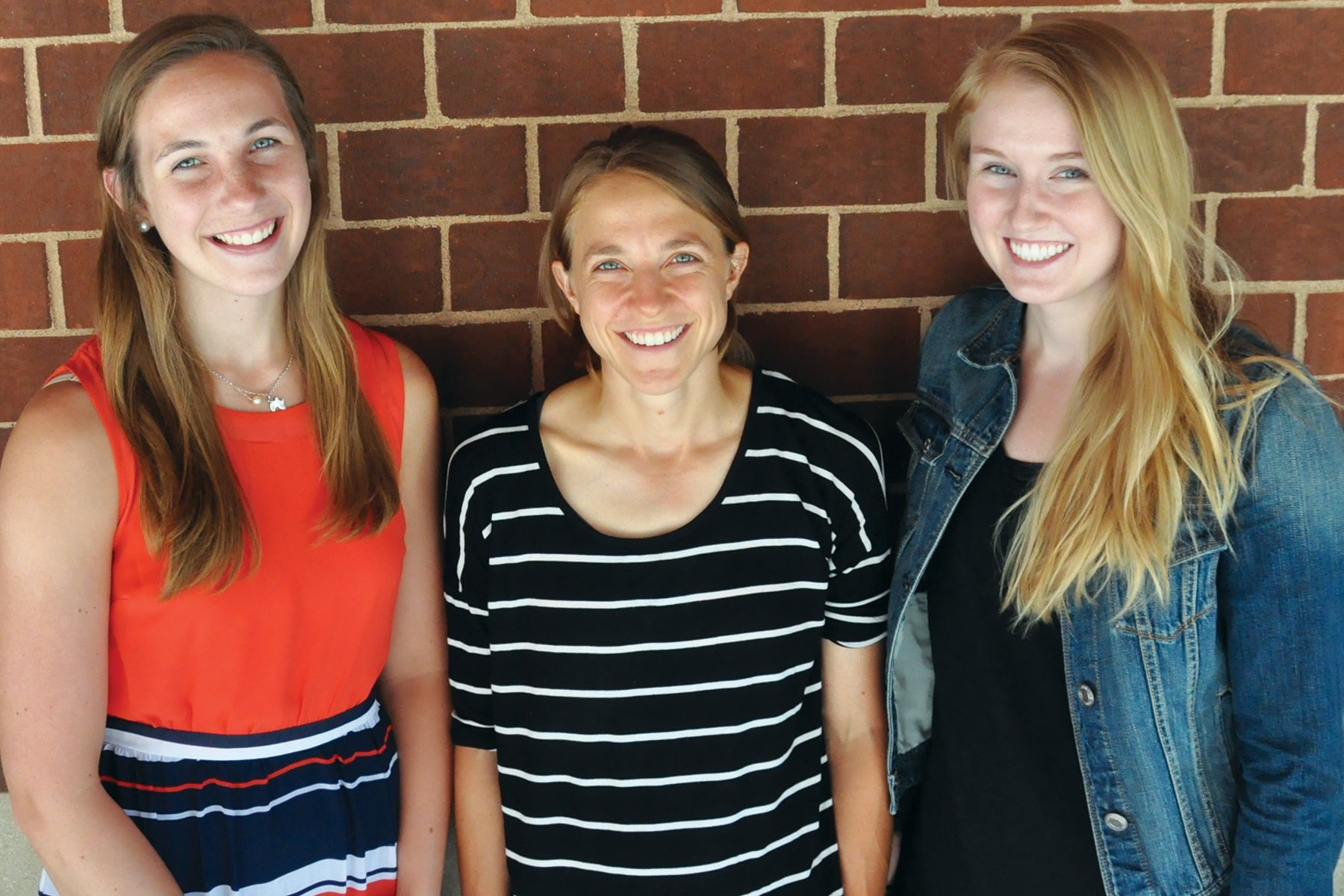
Mel Koop, Matea Wasend, Hannah Silvah-Breen
Gender Equity Summer Interns
Mel Koop is from Roseville, MN and is currently pursuing her master’s degree in Sports Law & Business at Arizona State University. Koop received her undergraduate degree from the College of Saint Benedict majoring in Mathematics and minoring in Exercise Science and Sports Studies. Koop was also a student-athlete playing on the women’s volleyball team. In addition, Koop has been a coach, referee, tournament coordinator, student and sports fan. Given such a varied background, Koop decided to apply for a Tucker Center Gender Equity Internship to be better prepared to enhance the experience of the next generation of athletes. As Koop states, “I am so fortunate to have interned at the Tucker Center this past summer as it was truly an inspiring, empowering and amazing opportunity. Working with Dr. LaVoi, Dr. Kane, [my fellow intern] Hannah and the rest of the Tucker Team has personally been a highly valued experience because I learned a lot in my short time from these insightful mentors and coworkers. By being able to make a contribution to such a renowned organization in a field I am deeply passionate about, I feel I am able to make a difference in the sports world.” We couldn’t agree more and are so grateful that Mel Koop joins the ranks of our summer interns.
Hannah Silva-Breen is currently a senior at Gustavus Adolphus College, where she is studying Psychology and Exercise Physiology. Silva-Breen will be applying to graduate schools this fall, hoping to enroll in a Clinical or Counseling Psychology doctoral program. Outside of her academic career, Silva-Breen has been an assistant coach for the Minnesota Suns AAU basketball program, and will be transitioning to the head coaching position for the 2018 season. Silva-Breen believes that her work through sport, academics and the Gender Equity Internship program has prepared her to make a positive impact in the world of youth athletics and sport psychology. During her time at the Tucker Center, she assisted in collecting and compiling data for a forthcoming research report on coach turnover patterns in Division I women’s sports programs. “Being a summer intern was an incredible opportunity and an enlightening experience to be a part of the research process at the Tucker Center. I learned a lot and hope to carry this experience with me, continuing the work in gender equity and sport.” We have every expectation and confidence that she will.
Pam Borton Fellow for Girls & Women in Sport Leadership
Matea Wasend is a second-year M.S. student in the School of Kinesiology with an emphasis in Sport Sociology, advised by Dr. LaVoi. These days Wasend coaches soccer for the St. Paul Blackhawks Soccer Club as well as Cretin-Derham Hall High School. Wasend graduated from Macalester College in 2012, where she majored in English and Media Studies. Her master’s thesis will examine the impact of women college coaches on female athletes’ likelihood to enter the coaching profession. This is what Wasend had to say about her experience as a Borton Fellow: “It was amazing to continue my involvement with the Tucker Center this past summer. I was able to work on several important projects, including examining the hiring practices of Athletic Directors at schools with high percentages of female coaches. I also contributed to the Tucker Center’s upcoming research report on girls and physical activity. Dr. LaVoi is an incredible scholar and an even better mentor—it was an honor to represent the Tucker Center alongside her.” Let us return the favor by saying what an honor it was to have Matea Wasend as the newest Borton Fellow.
Research Presentations
- In June, a group of scholars dedicated to making a difference for women coaches presented their research at the annual North American Society for Sport Management (NASSM) conference held in Denver, CO. Pictured here (L-R): Drs. Janelle Wells (USF), Laura Burton (UConn), Nicole M. LaVoi (TC Co-Director), Heidi Grappendorf (U of Cincinnati), and Sarah Leberman (Massey University, New Zealand).
- Last spring and summer, LaVoi gave multiple presentations to—and about—women sport coaches including the TC’s Women Coaches Symposium, the NCAA Inclusion Forum, and the NCAA Women Coaches Academy. LaVoi was also invited by the Japanese Center for Research on Women in Sport: This fall she is traveling to Tokyo to present at the Japanese Women Coaches Academy.
- In August, LaVoi presented to 100+ participants at the MIAC Student-Athlete Leadership Conference held at St. Mary’s University in Winona and to the St. Cloud State University Women’s Soccer Team regarding team culture and leadership development.
- Professor and TC Director Mary Jo Kane has been invited to deliver the annual Esther Larson McGinnis Distinguished Lecture at Illinois State University, Bloomington-Normal, IL this October.
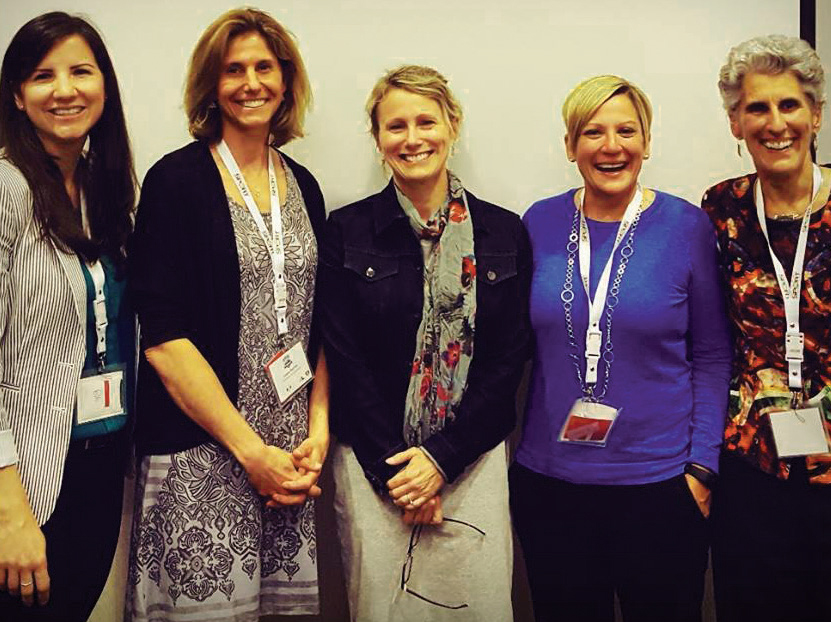
Janelle Wlls, Laura Burton, Nicole M. LaVoi, Heidi Grappendorf, Sarah leberman
Publications
- In late fall of 2017, Kane will publish an invited chapter, “Why studying sport matters: One woman’s perspective as a sport sociology scholar,” in Sociology of Sport: Ten Scholars, Ten Perspectives—Critical Research in the Sociology of Sport, published by Emerald Press, UK.
- TC Affiliated Scholar Elizabeth Daniels (U of Colorado) published a paper in Sex Roles with J. R. Linder titled, “Sexy vs. sporty: The effects of viewing sexualized images of athletes on self-objectification in men and women.”
- TC Affiliated Scholar Daheia J. Barr-Anderson (UMN) published a paper with her colleagues titled, “The modifying effects of race/ethnicity and socioeconomic status on the change in physical activity from elementary to middle school” in the Journal of Adolescent Health.
- TC Affiliated Scholars Laura Burton and Sarah Leberman edited a book published by Routledge titled, Women in Sport Leadership: Research and Practice for Change. The book includes a chapter by TC Affiliated Scholar Vicki Schull (Minnesota State University, Mankato) titled, “Young women in sport: Understanding leadership in sport.”
- LaVoi published a paper with Maya Hamilton (Ph.D. graduate and TC Research Assistant) titled, “Coaches who care: The ethical professional identity development of moral exemplar collegiate coaches” in the Journal of Moral Education.
- Due to popular demand, in late 2017, the TC will publish the third installment of the Tucker Center Research Report featuring the latest multidisciplinary research, best practices, and leading experts pertaining to girls’ sport and physical activity participation. The inaugural 1997 report and the 2007 10-year update are available on our website.
- The Tucker Center produced the research report, “Gender, Race & LGBT Inclusion of Head Coaches of Women’s Teams: A Report on Select NCAA Division-I Conferences” for the 45th Anniversary of Title IX, in partnership with LGBT SportSafe and The Institute for Diversity and Ethics in Sport.
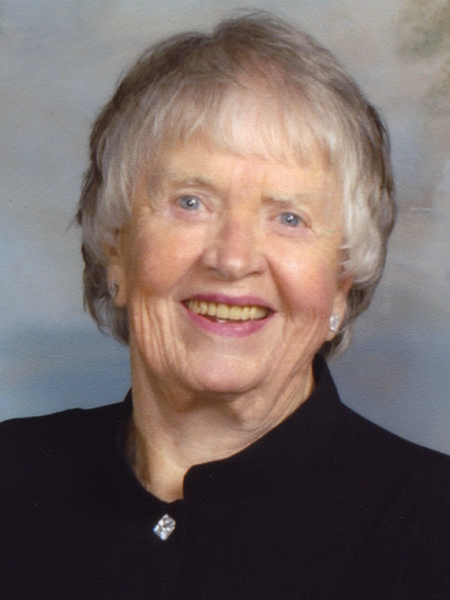 Dorothy McNeill Tucker, our founder and benefactor, passed away at 94 this past August in Kerrville, Texas. A native of Racine, WI, Dr. Tucker graduated from the University of Minnesota in 1945 with a degree in Recreation Leadership. She later earned a doctorate in Counseling Psychology at UCLA. As a pioneer in many aspects of her life, Dr. Tucker went on to become the first woman to become a tenured faculty member at California State Polytechnic University in Pomona.
Dorothy McNeill Tucker, our founder and benefactor, passed away at 94 this past August in Kerrville, Texas. A native of Racine, WI, Dr. Tucker graduated from the University of Minnesota in 1945 with a degree in Recreation Leadership. She later earned a doctorate in Counseling Psychology at UCLA. As a pioneer in many aspects of her life, Dr. Tucker went on to become the first woman to become a tenured faculty member at California State Polytechnic University in Pomona.
In 1993, Dr. Tucker contributed $1 million to establish the Tucker Center for Research on Girls & Women in Sport, which was then the largest gift from an individual donor in the history of the College. Pleased with our accomplishments during the initial decade of work, Dr. Tucker contributed another $1 million in 2001. Robert Bruininks, President Emeritus of the U of M and College of Education Dean at the time of her initial gift, says of this remarkable development in the history of women’s sports and the role of the TC, “Dr. Tucker understood the power of Title IX in transforming the opportunities afforded girls and women in our society; and she understood the impact of participating in sports and an active lifestyle in promoting leadership, vitality and health. … She believed that her substantial financial investment to create the Tucker Center was truly a noble and inspiring cause.”
From its inception, the Tucker Center has shared its research and educational initiatives with scholars, educators, policymakers, parents, administrators and female athletes. As a result, Dr. Tucker’s vision has become a reality. She truly made a difference in the lives of countless young girls and women, their families and communities, and her generosity will enable her legacy to live on. We are honored to be a part of that remarkable legacy.
“I have received more from the gift than has the University. The joy of giving is increased tremendously when you can see how your gift is being used during your lifetime.” — Dorothy McNeill Tucker (December, 1996)
Thank you, Dr. Tucker. Those of us who advocate on behalf of girls and women in sport are forever in your debt.
Wednesday, October 18, 2017 • 7:00 pm - 9:00 pm
Cowles Auditorium, Hubert H. Humphrey Center
University of Minnesota West Bank Campus
In 2015, former Olympic Decathlon gold-medal winner Bruce Jenner famously announced her gender transition to Caitlyn Jenner. This unprecedented cultural moment created a public dialogue around what it means to be transgender, and in particular, how such definitions and transitions challenge our notions and practices of sex, gender and athletic participation. More than any other institution, sport is seen as a highly gendered activity: We have “women’s sports” and “men’s sports” and never shall that gendered binary be crossed. So what does it mean when someone who has been identified at birth as “female” transitions to being and living as male (and vice versa)? And how do such realities challenge and disrupt the sporting enterprise?
Because sport is built on the notion of an “equal playing field” there has been a particular resistance to male-to-female transgender athletes, beginning with Rene Richards’ deeply resisted attempt to compete on the Women’s Tennis Association tour in the 1970s. More recent examples of transgender athletes have included Kye Allums, the first openly transgender student-athlete to play Division I basketball, and Minnesota native and transgender high-school student-athlete Zeam Porter, who testified before a Minnesota State High School League’s hearing as they shaped policy for transgender athletes. On a national scale, those who oversee amateur and professional sports are adopting groundbreaking policies that determine who can play on which team and under what circumstances. As a result, a significant cultural shift is occurring: Transgender athletes challenge traditional beliefs and practices about sports as a “natural” extension of binary-based and biologically driven sex differences. These pioneering individuals are also challenging something more fundamental—the very essence of what it means to be, and to compete as, “female” and “male” in modern U.S. society.
The 2017 Distinguished Lecture features a panel of experts who will examine these complexities from a variety of perspectives: A scholarly critique that will highlight research on transgender athletes and their attempts to gain equality in the sportsworld; an overview of policies that are being developed and implemented in college athletics; and the lived experiences and insights offered by a transgender former athlete.
About the Panelists
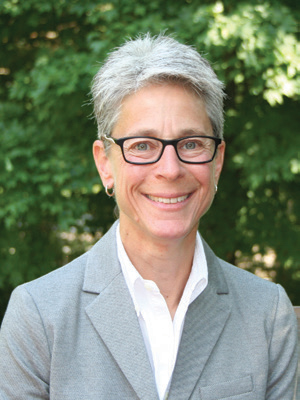 Vikki Krane is Professor and Graduate Coordinator in the School of Human Movement, Sport, and Leisure Studies at Bowling Green State University, Bowling Green, OH. She is also an affiliated faculty member with the Women’s, Gender, & Sexuality Studies, as well as an Affiliated Scholar with the Tucker Center. A sport psychologist by training, Krane’s scholarship examines sex, gender, and sexuality within a sport context. Her current research focuses on intersex, transgender, and lesbian athletes. She has authored numerous journal articles and book chapters in this emerging field, as well as given a number of keynote and invited lectures on LGBT sportspeople. Professor Krane’s work was recently recognized when she received the Excellence in Diversity Award from the College of Education and Human Development at BGSU.
Vikki Krane is Professor and Graduate Coordinator in the School of Human Movement, Sport, and Leisure Studies at Bowling Green State University, Bowling Green, OH. She is also an affiliated faculty member with the Women’s, Gender, & Sexuality Studies, as well as an Affiliated Scholar with the Tucker Center. A sport psychologist by training, Krane’s scholarship examines sex, gender, and sexuality within a sport context. Her current research focuses on intersex, transgender, and lesbian athletes. She has authored numerous journal articles and book chapters in this emerging field, as well as given a number of keynote and invited lectures on LGBT sportspeople. Professor Krane’s work was recently recognized when she received the Excellence in Diversity Award from the College of Education and Human Development at BGSU.
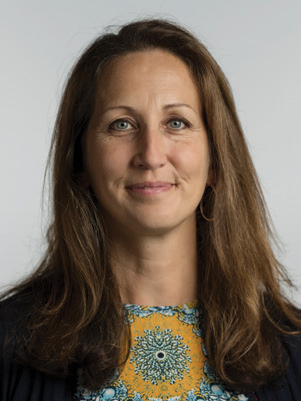 Heidi Jaynes is in her 19th year as Head Volleyball Coach and Professor of Physical Education, Athletics and Recreation (PEAR) at Carleton College. Since 2010, Jaynes has served as the Associate Athletic Director and Senior Women Administrator. Her past accomplishments as a head coach have included being named Minnesota Intercollegiate Athletic Conference (MIAC) Coach of the Year and American Volleyball Coaches Association (AVCA) Regional Coach of the Year. She has coached eight All-Americans and 12 AVCA All-Region student-athletes. As an athletic administrator, Jaynes is involved in managing compliance, gender equity and inclusion, program evaluation, game management, publications, and faculty and staff development. In 2014, Jaynes was instrumental in creating and chairing Carleton’s Equity Committee which authored the school’s Transgender Policy.
Heidi Jaynes is in her 19th year as Head Volleyball Coach and Professor of Physical Education, Athletics and Recreation (PEAR) at Carleton College. Since 2010, Jaynes has served as the Associate Athletic Director and Senior Women Administrator. Her past accomplishments as a head coach have included being named Minnesota Intercollegiate Athletic Conference (MIAC) Coach of the Year and American Volleyball Coaches Association (AVCA) Regional Coach of the Year. She has coached eight All-Americans and 12 AVCA All-Region student-athletes. As an athletic administrator, Jaynes is involved in managing compliance, gender equity and inclusion, program evaluation, game management, publications, and faculty and staff development. In 2014, Jaynes was instrumental in creating and chairing Carleton’s Equity Committee which authored the school’s Transgender Policy.
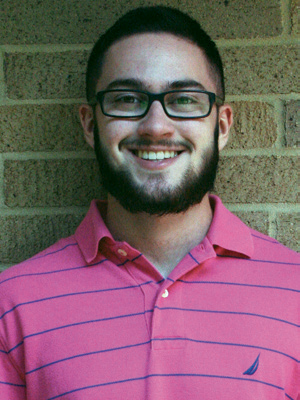 Brent Darah graduated from Bowling Green State University with a Sport Management major while competing for three years as a student-athlete and is currently pursuing a Master’s degree in Sport Administration. For two of the three years Darah competed, he was a member of the women’s cross country and track team. During this time, he came out as transgender and began medically transitioning while competing as a member of the men’s cross country and track teams. Darah broke many barriers as he became the first transgender athlete in collegiate cross/country and track at BGSU, as well as in the Mid-American Conference. Darah chose to come forward publicly with his story in 2016 after he discontinued his athletic career. He has garnered national attention sharing his personal history and sport experiences.
Brent Darah graduated from Bowling Green State University with a Sport Management major while competing for three years as a student-athlete and is currently pursuing a Master’s degree in Sport Administration. For two of the three years Darah competed, he was a member of the women’s cross country and track team. During this time, he came out as transgender and began medically transitioning while competing as a member of the men’s cross country and track teams. Darah broke many barriers as he became the first transgender athlete in collegiate cross/country and track at BGSU, as well as in the Mid-American Conference. Darah chose to come forward publicly with his story in 2016 after he discontinued his athletic career. He has garnered national attention sharing his personal history and sport experiences.

